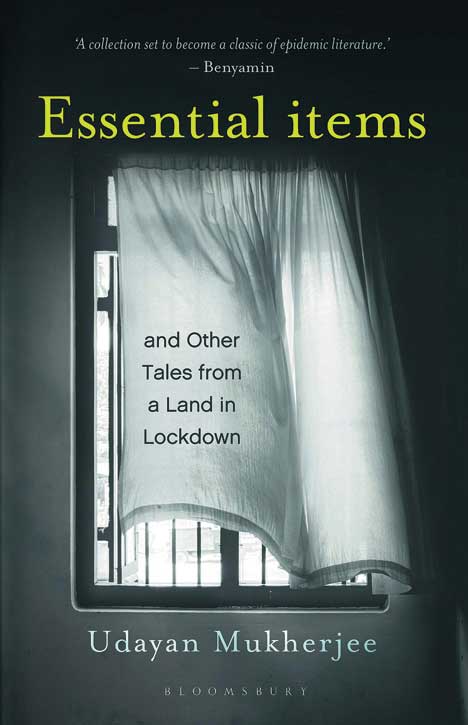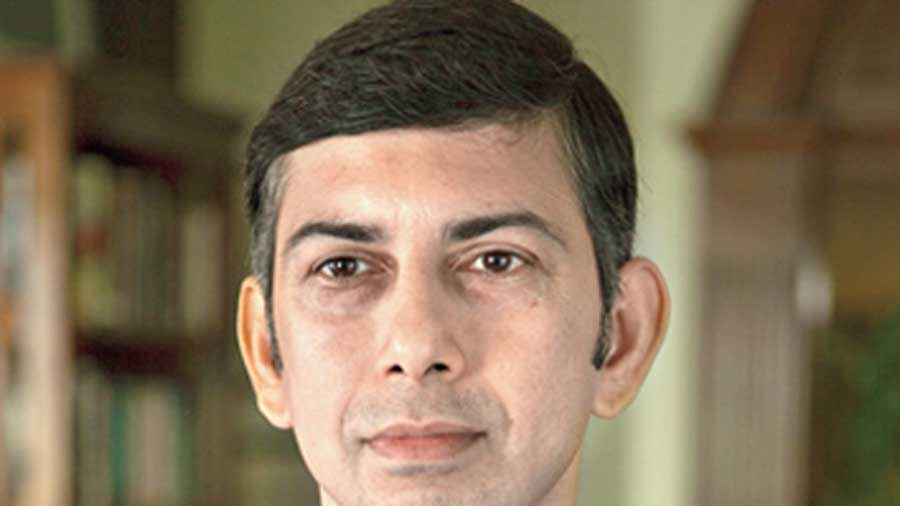At a Tata Steel Kolkata Literary Meet session in association with Bloomsbury India, partnered by The Telegraph, author Udayan Mukherjee delved deep into the process of coming up with his third book, Essential Items and Other Stories from a Land in Lockdown, in the middle of a pandemic. He was in conversation with author Devapriya Roy who self-admittedly belonged to the second group of writers who spent their days of the lockdown being unproductive and binge-watching Netflix, but not Mukherjee. The latter paused work on the book that he was more than halfway through already to come up with this collection of 10 short stories that reflect upon various facets of life in lockdown.
“Using the word ‘captured’ to describe these stories is interesting because in my mind chronicling of this pandemic falls on the journalists for the sake of posterity if you will. This was one of the major challenges that I grappled with while penning these stories. To be writing them, not in retrospect, but while it is happening, was the challenge that I knew people would be critical. That I was fictionalising the pain that was so current but I found the blurring of the line between fiction and reality to be creatively stimulating,” said Mukherjee.

Book cover
Writing about the emotional damage that the pandemic caused within people from varied walks of life, turned out to be the driving force behind the churning out of stories.
Stopping at 10 stories felt organic to the author, he tells the audience. The author spent many years building a resort in Munsiyari, and it was a place that was familiar to him so it didn’t surprise him when the first story he penned was one based in the same place and was a heartening tale of a friendship between a seven-year-old boy and a foreigner in Border Town. The 10th story, Essential People, was the last, post which he felt that he did not want to continue further, that he had told all the stories he had to narrate. “As a writer, I had a moral responsibility towards my readers to not depress them further than what everyone already felt in the middle of a pandemic. So I started with a heartening story that was Border Town,” he added.
Having previously written two novels, Mukherjee didn’t shy away from admitting that he initially envisaged writing a novel based on this but he would not have been able to capture so many varying facets of life in a single novel. Short stories felt more organic to the process for these stories demanded diversity.
On the open-ended endings that are found in most of the stories, the author offered a sound explanation. “Open-ended stories have a different impact on each reader and successful storytelling is when there is an emotional exchange between the story ending and the reader. This is why I kept the endings open and as each reader thinks of an ending, they form ownership of sorts with the stories,” he said. His stories didn’t just reflect upon a particular group of people who can be categorised according to caste, creed, gender, age or economic status. With delicate hands, he introduced the emotional turmoil hidden behind the tragedy. So when the power balance shifts between the two bread earners of the family, the shift in delicate balance is felt by every member of the family, in stories like Holidays. The book took 100 days to write and while he did think of other name options for the book, ‘Essential Items’ stuck because of what the words came to mean during the pandemic. What was and wasn’t considered ‘essential’ is questioned ever so subtly in this book and it was refreshing to hear the author tell us about what went on behind the scenes.
The video of the live session is available for viewing on Kolkata Literary Meet’s Facebook page and the book is available at all leading bookstores around you and on your screen!










